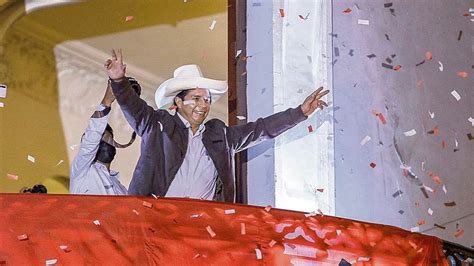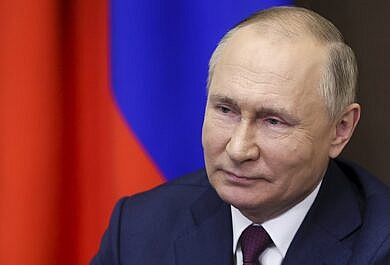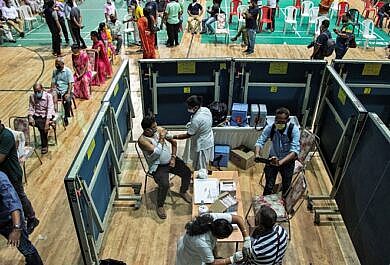The president of Peru tried to dissolve Congress and seize control of the government before being removed from office and arrested.
Summary
President Pedro Castillo of Peru began the day Wednesday with an attempt to dissolve Congress and seize control of the government, kicking off a whirlwind constitutional crisis. Castillo was ejected from office, replaced by his vice president and ended the day in jail.
- Then-President Castillo announced Wednesday morning he would replace the opposition-controlled Congress with an “exceptional emergency government” in a dramatic national address hours before he was to face his third impeachment after two previous attempts.
- Castillo’s decree was met with immediate pushback from Peru’s armed forces, courts, and police. They warned Castillo against violating the constitution, which only permits the president to dissolve Congress after the legislature carries out two no-confidence votes.
- The decree sparked mass resignations from Castillo’s cabinet and his own vice president condemned his action as an “attempted coup.” Lawmakers ignored Castillo’s attempt to shut down the legislature and moved up the previously scheduled impeachment vote. They swiftly impeached and removed the president by a 101-6 vote, with 10 abstentions.
- Police arrested Castillo on Wednesday evening. At a court hearing on Thursday, Castillo was charged with “rebellion” and will be jailed until his trial. Castillo was sent to the same Lima prison where former president Alberto Fujimori is serving out his own prison sentence.
- Dina Boluarte, Castillo’s vice president, became Peru’s first female president after her predecessor’s removal. Boluarte worked quickly to consolidate power, appearing with in a military ceremony on Friday in an attempt to reinforce her legitimacy. The U.S. State Department quickly released a statement announcing its support for Boluarte.
- Pedro Castillo, a rural schoolteacher, came out of nowhere to win the presidency in the 2021 elections. Castillo ran as an openly Marxist, populist outsider whose victory was celebrated by the poor and indigenous who helped put him in power.
- This week’s crisis is just the latest symptom of the political volatility that’s plagued Peruvian politics in over the past thirty years.
- The world’s second largest copper exporter has cycled through six presidents in as many years, with three presidents serving within one chaotic week in 2020.
- Several ex-presidents have been jailed for corruption, while another former leader shot himself when police arrived to arrest him on corruption charges.
![]()
- The New Yorker assessed what the fall of “the world’s shortest-lived dictatorship” means for Peru. Castillo’s downfall “was, even by the standards of Peruvian politics, a breathtaking, head-spinning farce” that saw the president speak at noon, be impeached at 2:00pm, and by 3:00pm Boluarte had been sworn in.
- The New York Times wrote that Castillo’s attempted self-coup “echoed a similar move by former President Alberto Fujimori 30 years ago. Like Mr. Castillo, Mr. Fujimori was a populist outsider who was elected democratically in 1990. Two years later, he staged a coup to shut down Congress with the support of the military, and ruled as a dictator until 2000. He is now in prison on charges of corruption and human rights abuses.”
- Axios reported Castillo is now seeking asylum in Mexico. Mexico’s ambassador to Peru met with Castillo in prison on Thursday. The country’s leftist president, Andres Manuel Lopez Obrador, is reportedly considering the request.
![]()
- The Wall Street Journal noted the mineral-rich country of more than 33 million people was “walloped by the pandemic,” and the resulting economic hardship, along with a string of corruption scandals, has shaken public confidence in the Peruvian political class.
- Fox News called Castillo’s downfall “a warning to Latin America’s left” and “an opportunity for the U.S. to reset its geopolitical and economic relations with one of its most important allies in Latin America.” The openly Marxist Castillo threatened the U.S.-Peru relationship, and the swift institutional response to his coup attempt sent a message to other leftist leaders thinking about trying a similar power-grab.
- The fall of Pedro Castillo “exposes Peru’s bitter divisions,” per an analysis from the Financial Times. During his brief but chaotic 16-month tenure, Castillo fought off multiple corruption investigations and two failed impeachment attempts and frequent ministerial resignations. Nonetheless, Castillo remained fairly popular in rural regions even as his approval cratered in Lima and other urban areas.
© Dominic Moore, 2022






